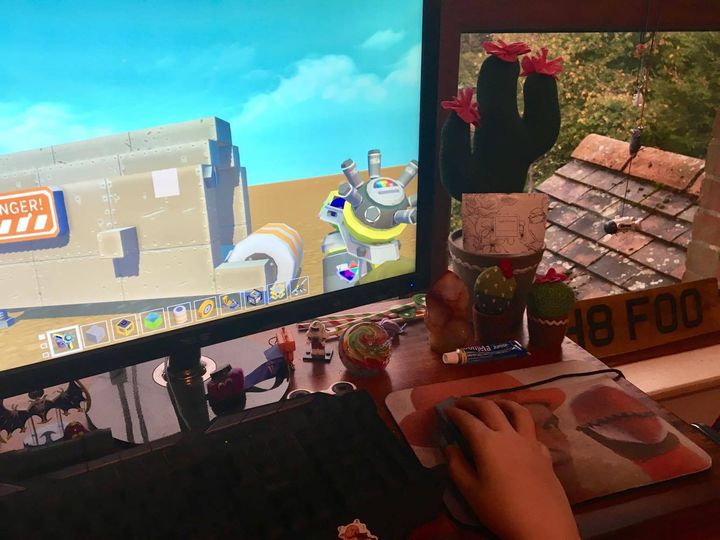Kids learn because they are observant. I don't only mean modelling, I mean the human brain is designed to notice patterns and there are patterns everywhere - in speech, in social interactions, in shapes of things, in the relationships between physical characteristics. Some sets of related patterns we call "language" some we call "mathematics" some we call "music" etc. Kids can't help but notice those patterns and think about them because that's what our big convoluted brains do best.
SandraDodd.com/patterns
photo by Hema Bharadwaj






